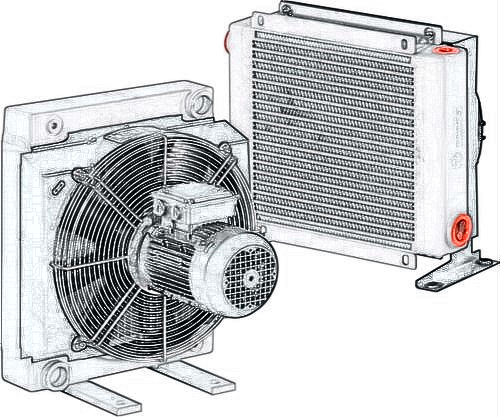Hydraulic Oil coolers are also known as hydraulic heat exchangers. The primary function of the oil cooler in the hydraulic system is preventing the system from over-temperature. Oil coolers in both closed and open hydraulic system will pass the hydraulic oil through a coil or core to reduce the generated heat of the oil. Also, this cooling component can mitigate the effect of environmental surroundings. The following are the other important benefits of using oil coolers.
Stable cooling and filtration performance
Unaffected by fluid flow and duty cycle variation.
The size of the oil cooler can be varied on the basis of heat load
Extend the life of the hydraulic system and hydraulic oil
Pressure in the return line doesn’t affect the oil cooler. Because it is placed separately
Improve the overall efficiency and productivity of the system
Easy to maintain and repair.
Entire system shut down not required for repair/maintenance
Hydraulic oil coolers are used in different industries like agricultural, manufacturing, automobile, etc… The important components required for the construction of hydraulic oil coolers are oil reservoir, cooling fan, relief valve, filter, mini hydraulic motor, etc… The size of the oil cooler is directly related to the heat load. For a system with higher heat generation, the cooler sizing needs to be proportionally greater to withstand that load. The other major consideration in choosing a hydraulic oil cooler are flow required, desired oil temperature, oil viscosity, and more.
Air-cooled oil coolers and water-cooled oil coolers are the two important categories of oil coolers used in the hydraulic system. In the air-cooled oil cooler, it will be equipped with electric or hydraulic ventilator and it cools down the heated fluid by streaming air through it. The water-cooled oil cooler utilizes liquids for cooling the hydraulic oil. This cooler is more efficient, quieter and compact in size. To prevent contamination of both fluids, a barrier is used for separation.
